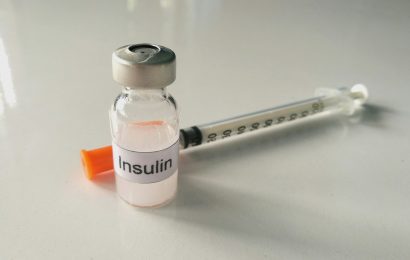We tend to think that economic downturns must be bad for us, but a number of studies show that hard times actually increase physical health. How could this be, and how may this apply to diabetes?
Scientists from around the world have published studies showing that during recent recessions in the United States as well as countries in Europe, Asia, and Latin America, death rates usually go down. Even when severe “austerity” programs like those in Greece slash public health programs and make medical care harder to get, the health of the population rises.
One exception: Suicide rates go up in hard times. But death rates from accidents and heart disease appear to drop. Overall, health usually improves.
It sounds crazy, I know. How could rising unemployment, declining services, and falling wages be good for you? Some notable experts in public health refuse to believe it, but the data are hard to refute.
In some discussions on public health websites and mailing lists, I have suggested six ways that hard times could be healthy:
1. In good times, people leave home, because they can afford to. That’s what adults are supposed to do in modern capitalist countries like the U.S. “Still living with Mom” is a mortal insult, especially to young men.
Separation of families is not healthy, though. Studies show that households with three (or more) generations of family are happier and healthier.
“Living with other family members…encourages health practices and reduces stress through emotional reassurance,” says one expert. Perhaps having family around will encourage healthy eating and discourage self-destructive behaviors. Having children around might make you move more. You will feel more supported and less alone.
Hard times bring families together. Those who left may have to come home. We might not like it, but it’s often good for our health.
2. Hard times can make people support each other. During World Wars I and II, life spans for civilians rose sharply in England. Some Brits were quoted saying things like, “In the war, it felt like we were all in this together. Now it’s over, and I’ve gone back to just being me.”
A lot of research in public health shows that social isolation is harmful for health. Social networks and friendship are strongly associated with good health. “All in this together” is good medicine.
This is why personal hard times, like being out of work or lonely or in pain, can cripple your self-esteem and may raise your risk of death, but general hard times, in which most people are sharing, can lower your risk.
3. Good times encourage us to consume more. That can include food, drugs, or material stuff, much of which is unhealthy. In hard times, we consume less.
A British report found “saving money” was the number two reason for quitting smoking. If a family decided to save money by skipping desserts most evenings, that might be good for their members with diabetes.
4. In good times, people drive more. Driving is stressful, sedentary, and carries the risk of crash and injury. Alternatives such as walking or biking are healthier. Insulin resistance will fade when a person becomes more physically active, so the less driving the better. When we have to consider how to pay for the gas we use, we will probably drive less.
5. Economic expansion often involves working more. New businesses start up; companies go on overtime. You can make money that way, but long work hours are not healthy, especially in dangerous or stressful jobs.
6. Economic expansion is associated with increased pollution. As I’ve written here several times, toxic pollution has a strong association with the development of diabetes. Air pollution from driving and factories; water pollution from chemicals, factory farming, and fracking; and plastic pollution have all been connected with diabetes in studies.
Live as if times were hard
I think we should learn these lessons for two reasons. One, hard times are here for more people every day. They are not going away. Two, you can get the health benefits of a downturn without the actual poverty, if you learn how.
• Have a family that includes people of different ages. Old people can share wisdom and give you someone to look after. Children give you unconditional love and life energy. If you can’t have a biological family around you, can you create a “chosen family” of friends you love?
• Drive less; walk and bike more, or use public transportation. Spare the air.
• Eat less, and try to get as much food as possible at farmers’ markets. Most towns also have discount supermarkets and wholesale markets where you might buy day-old produce or big boxes at lower prices. Get some neighbors together to share the big boxes before they go bad.
• Work less. This might not be possible for everyone, but if possible, work less and do more things with family and friends. Do more things to take care of yourself, more things to have fun, and more things to make the world a better place. It might not actually get better for everyone, but maybe it will for you.
• Believe we’re all in this together, and treat other people that way.
• When politicians, economists, and financiers say “economic growth” is the greatest good, don’t believe them. “Good times” are bad for the Earth — think global warming — and many things show they are bad for us, too.
After keeping it on a shelf for nine months, Scott Coulter finally set up his CGM yesterday, and it’s already changed his life. Bookmark DiabetesSelfManagement.com and tune in tomorrow to learn more.





